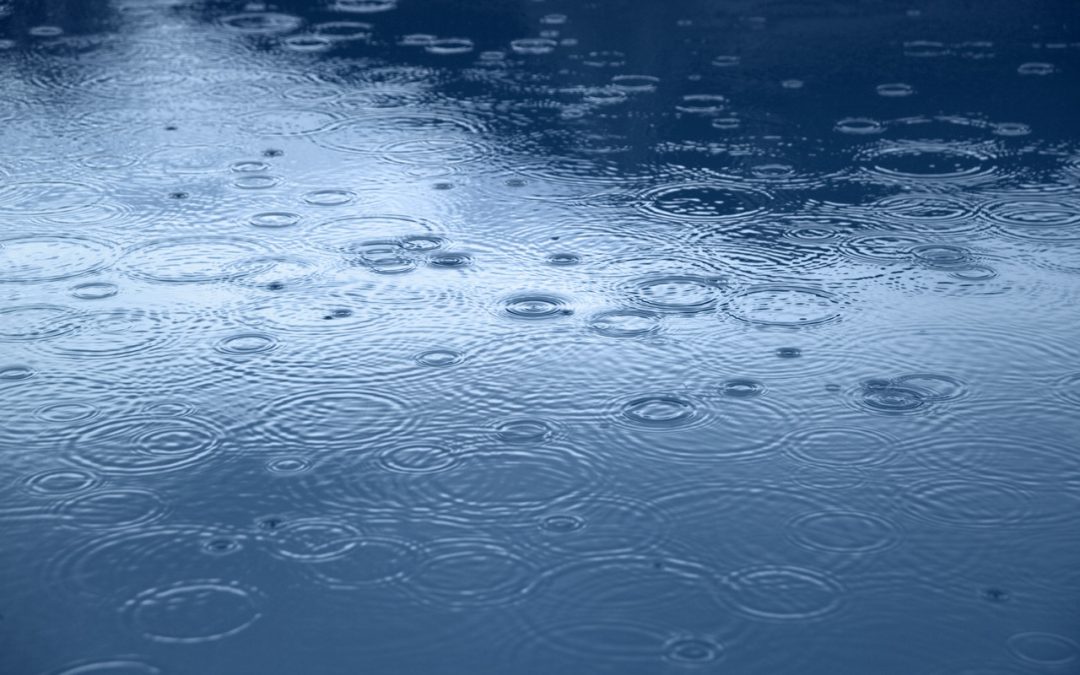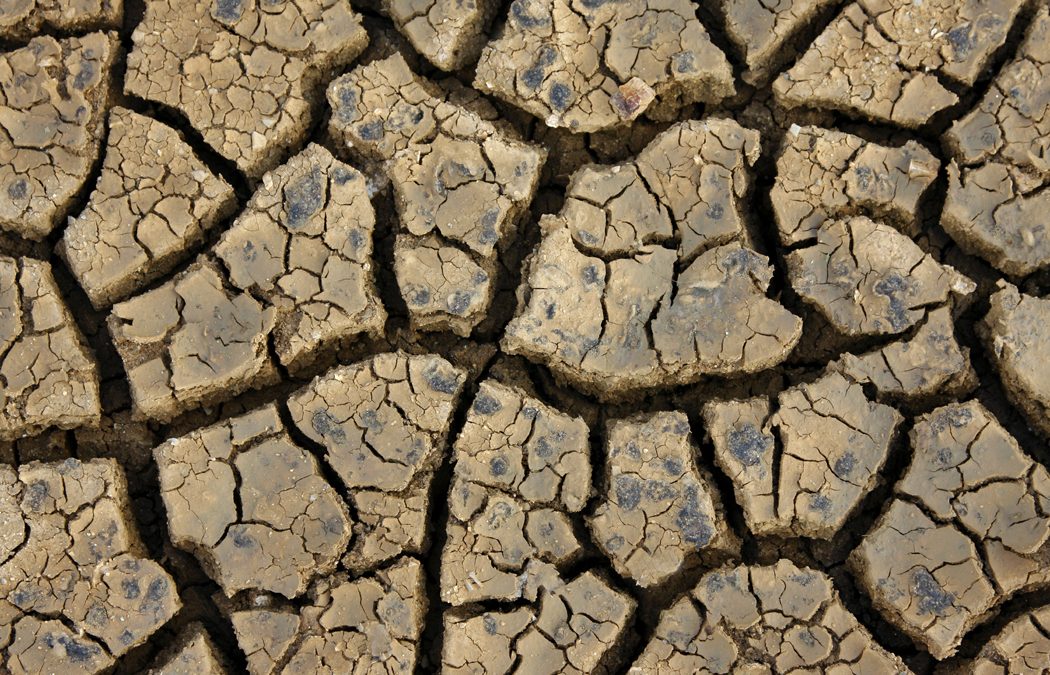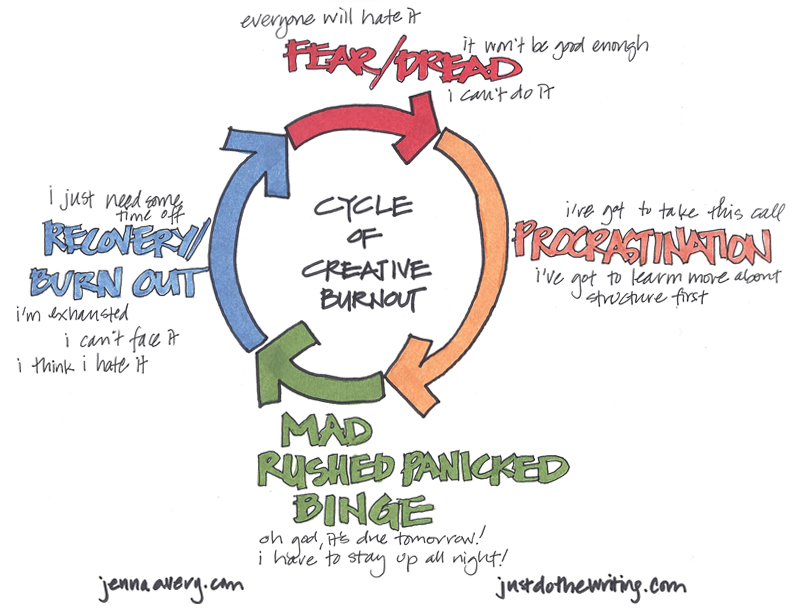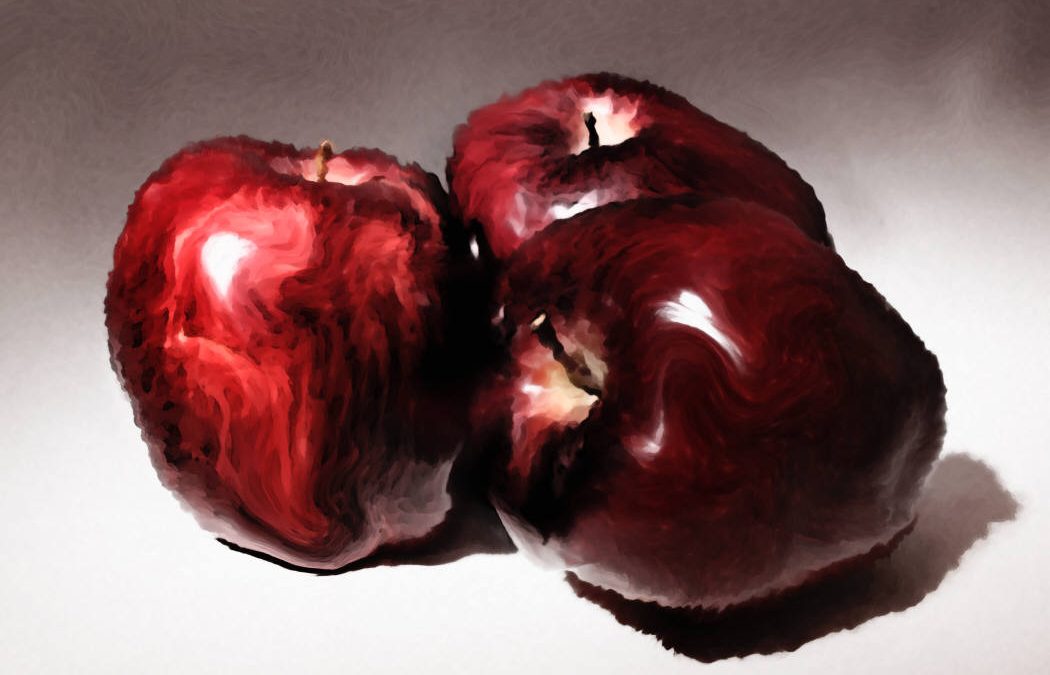
by Jenna | Nov 28, 2012 | Writing Articles
Accomplishment amnesia is a common ailment that strikes many of us, particularly those of us that are highly conscientious, responsible, talented, and highly sensitive. It seems to run in parallel with these traits.
What is accomplishment amnesia?
Accomplishment amnesia occurs when we get so busy meeting our obligations and moving on to the “next thing” that we quickly forget what we’ve done in the past (however distant or recent) that has value.
I find this malady particularly comes up when we get into a place of self-doubt — we can’t remember a single thing we’ve done or accomplished. We feel useless, talentless, valueless.
We might even feel creatively blocked or numb because we are devaluing the work we’ve done but are not appreciating.
A darn good job
I’ve been going through a rough patch lately, and I noticed recently that as I’ve been starting to feel better, I’ve been berating myself for not having done more lately. “Why am I so behind? How have I let things get like this?”
I stopped myself and noticed what was really going on: I had accomplishment amnesia.
I quickly reminded myself of all the personal challenges I’ve faced over the last couple of months, including having surgery on my wrist, and shifted the conversation to noticing what I have done: filed my taxes, settled a car accident claim, dealt with an intensely difficult emotional time, never missed writing a blog post, coached my clients, continued running my writing community, and carried on writing my screenplay no matter what. Wow! I’ve accomplished a lot under very difficult circumstances.
Sure, there’s more, there always is. But look at what I’ve done!
Does this happen for you too?
Most of my clients have this kind of accomplishment amnesia. They’re so focused on what they haven’t done, that they forget to celebrate what they have.
Here’s how you can start to shift out of this delusion that you haven’t done anything worthwhile:
1. Catch accomplishment amnesia early.
When you notice yourself falling into the pattern (like I did), stop and take stock. Is it really true that you haven’t been doing enough? Take a few minutes to review what you actually have done. You’ll be surprised.
2. Don’t buy into the standard definitions of success and accomplishment.
Don’t limit yourself to society’s success definitions. Instead, think about what you’re proud of. Create your own definition of what it means to be successful.
Just yesterday, some of my writing pals and I were discussing what it means to claim the title of “writer.” Many of us are discovering it has much less to do with being a published or sold writer (though many of us are striving for those), and everything to do with showing up and doing the writing regularly — having a writing practice.
3. Set small milestones.
Increase your sense of accomplishment by setting and celebrating small milestones as you attain them. Instead of only celebrating when you complete the book, whoop it up for every chapter. Then when you do hit the finish line, make sure you celebrate that point too.
I’m rewriting my screenplay using Chris Soth’s “Mini Movie Method,” which lends itself nicely to this sort of milestone assessment. Every 15 pages I complete another mini-movie, so it’s easy to create a sense of accomplishment as I go.
Look for similar small milestones in your own work.
4. Celebrate your accomplishments in the moment.
I watched a fun video of Tamara Ireland Stone, author of the young adult book, Time Between Us,* which I just finished reading and very much enjoyed. She had just received her box of copies of her book and made a point to celebrate with her husband and friend and glass of wine. I hope she’ll do the same for every future book as well.
When you do have an accomplishment, STOP what you’re doing and celebrate. Build the muscles of appreciation for yourself and your work.
5. Create a “brag book.”
I’ve forgotten where I first heard this term, but the idea is to create a scrap book of your accomplishments so that you can go back and remind yourself, “Yes, I’ve done some amazing, wonderful things.” And you have. Include anything and everything you can think of that you’ve accomplished. On my list: birthing my son, finishing my first screenplay, completing graduate school and earning two master’s degrees, nurturing an incredible friendship with my best friend, becoming a certified life coach, etc.
Bottom line
It’s all too easy to think of ourselves as never reaching the finish line when there’s always so much more to do. Rather than thinking you’ll never get there, remember to enjoy what you’re doing along the way. It’s the journey, after all, that counts.

by Jenna | Nov 21, 2012 | Writing Articles
Over the last few weeks I've been writing about creative depletion and the cycle of creative burnout, and creating a cycle of creative renewal.
Today it's time to talk about recovering from creative burnout.
As I said to one of my Called to Write members once, it's a matter of rebuilding trust with yourself and coaxing yourself back to the table.
So how do we do that?
7 recovery steps
1. First, acknowledge the exhaustion and aversion to the work that's developed.
It's real. It's normal, and it's totally understandable.
Burnout happens from pushing ourselves too hard for too long and expecting that creative well to remain topped off. Doesn't happen.
2. Next, make a plan for recovery that includes down time.
...even if it's in the smallest of moments every day. Give yourself permission to close your eyes in a comfortable chair for a few moments allows your mind to let go, and relax. You're exhausted, you need to rest.
Ideally, you'll also want to schedule some full days off -- and vacations, if possible -- where you do nothing that's not just for you. Over the last month, I've taken two full days, mid-week, just to put my feet up and watch movies, eat great food, get some body work done, and saunter through the day at my own pace.
In other words, go for full out indulgence from time-to-time. You'll work harder, better, and faster, when you're rested. Not before.
3. When you feel ready, remind yourself why you love your craft.
Just today I was watching some clips from my favorite show ever, Firefly, and felt an upwelling of inspiration and passion come surging back through me.
You do love this work, you've just temporarily forgotten why.
Figure out what your jump-starts are, and go back to them when you need one.
4. Don't expect new ideas to come flowing back to you immediately.
Give yourself time and space to recovery, trusting that your creativity will return. Remember: you're not blocked, you're exhausted.
When my writers don't know what to write and don't have ideas flowing, I encourage them to start with a practice of morning pages (Julia Cameron's book The Artist's Way* is the seminal book on the subject).
5. Find ways to regain your inspiration.
Go on "Artist's Dates" (again, see The Artist's Way*), take yourself out for walks, movies, book signings, and speaking events. Consider attending events that have nothing to do with your craft. It's amazing how other topics, knowledge, and ideas can reignite your own originality.
6. When you feel ready, make a baby steps plan to get back on track with your work.
At Called to Write, we recommend working in the smallest possible increment of time that you know without question, that you will actually do. It's okay if it seems ridiculously easy (that's the point, in fact). You'll slowly build back up to more over time.
7. Give thought to how to prevent burnout next time.
In other words, plan ahead. Learn how to pace yourself properly and deal with the natural resistance and procrastination that comes up around creative work so that you don't put yourself right back where you've started.
If you do get into a situation where you'll be pushing to meet a deadline, think about how you can counter-balance the effort on the other side.
The bottom line
Creative recovery requires patience, permission, and a great deal of self-care. You, and your work, deserve it. Please give it to yourself.
Warmly,

You may also be interested in:

by Jenna | Nov 14, 2012 | Writing Articles
In my last post, I wrote about the cycle of creative burnout and how our creative inspiration becomes depleted when we push ourselves too hard and for too long.
I'm well acquainted with burnout; it's a cultural norm in the field of urban design, my last "real" J.O.B. The writing profession has its own set of deadline-driven, high-stress work.
In the creative realms, including writing, artists are often seen as people who work in fits and starts, pulling all-nighters when they suddenly become inspired (or finally stop procrastinating).
I've allowed myself to enjoy the feeling of heroism that comes when I swoop in and save the day, meeting the deadline with just seconds to spare, but I've paid high prices for every single one of those dramatic experiences: apathy, resistance, confusion, grief, exhaustion, and lifelessness.
And truthfully, I STILL feel like I'm recovering from the bad choices I made working 60 and 70 hours a week more than 10 years ago.
Balance is a myth? I don't think so.
It's been said that balance is a myth and that passion should reign supreme.
I disagree.
Imbalance is an amateur's gig.
Balance -- an ongoing cycle of work and renewal without resorting to extremes -- is part of not hitting bottom in the first place.
Balance is about staying sane.
It doesn't mean that we don't work hard and play hard at different times.
But it does mean keeping an eye on the greater whole and not bingeing on any one thing at any given time.
So what DOES a cycle of creative renewal look like?
The cycle of creative renewal
It looks like this:


by Jenna | Nov 7, 2012 | Writing Articles
In my writing community we periodically talk about creative burnout.
In our Western culture we work hard, driven by puritanical work ethics, cultural programming, keeping up with the Joneses, guilt, etc. It's no wonder we're exhausted.
We push and push ourselves, expecting our wells of creativity, resourcefulness, and inspiration never to run dry.
And then one day, we turn to the well and find it empty. No ideas. Maybe even a sense of dread and apathy.
The only way out is through
In a recent blog post, Mark Sanderson talks about his experience with this kind of creative depletion and how he recovered from it. Interestingly, his solution had to do with carrying on and doing the work no matter what.
He said:
"Some call it 'writer’s block.' I call it sheer terror. When this happens you need to relax and continue to work at your process. I know this too well from experience, but it still proves true every time – the only way to solve specific problems is to sit down and focus on the work."
It seems the only way out is through.
It takes courage
Writing -- for that matter doing anything that calls us to step out of our comfort zone -- requires a great deal of courage. A willingness to be uncomfortable often. To sit in it, do the work, and get to the other side.
No wonder we tend to procrastinate rather than facing that terror and doing it anyway.
Procrastination and burnout are close cousins
I've observed that procrastination plays a key role in creative burnout -- part of a vicious, intertwined cycle:

The reason we work past the point of endurance and exhaust ourselves is that we have procrastinated for so long that we are forced to push ourselves. And the reason we procrastinate that we are afraid.
I love what Steven Pressfield says about fear in his book Turning Pro:
"The professional, by the way, is just as terrified as the amateur. In fact the professional may be more terrified because she is more acutely conscious of herself and her interior universe. The difference lies in the way the professional acts in the face of fear."

by Jenna | Aug 29, 2012 | Writing Articles
Last week I wrote about “how I do it all, or not” and promised to follow up with tricks I know that help (but don’t always use) in today’s post.
Tricks I know but don’t always use
#1 Put my own agenda first
Something I was reminded of recently is that if I start my day with email, I end up focused on other people’s needs and desires — not in the energy that will help me fulfill my bigger dreams.
It’s when I put my own work first — either my writing or other “big” tasks for the day — I’m much happier and get more accomplished.
#2 Pick out the big three
I’ve also learned that if I can start off by picking the 3 big tasks that need to be completed in a given day and focus there first, the day works out for the best.
The challenge is that usually one or all of those three things is hard and triggers resistance. It’s all too easy to want to procrastinate about them, which means other things tend to expand as a way off putting of those hard things, like when I suddenly feel that it’s critically important to organize my digital files or purge my inbox.
Facing the music and doing those tasks, whatever they are (e.g. writing a challenging section of my script or making an uncomfortable phone call) is something I work on every single day.
#3 Be clear about what you need to let go
To make all of what I do happen, I’ve given up a lot.
When I had my son, I stopped volunteering so much of my time. I hired more help for my business and gave up doing so much of it myself.
When I started writing, I gave up watching so many movies and episodic programs.
Now I still watch television, but it’s very focused (and often kid friendly). I watch one movie or show at a time, usually on some kind of streaming or DVD. I don’t have cable and we no longer get regular TV reception (can you even do that anymore?).
I also gave up a lot of late night internet browsing and started getting up early so I could focus on my writing.
Bottom line
I’m not always consistent — some day I’ll get around to talking about discipline and creativity and breaking rules — but I do find that when I use these tricks I’m much happier than when I don’t.
Warmly,









